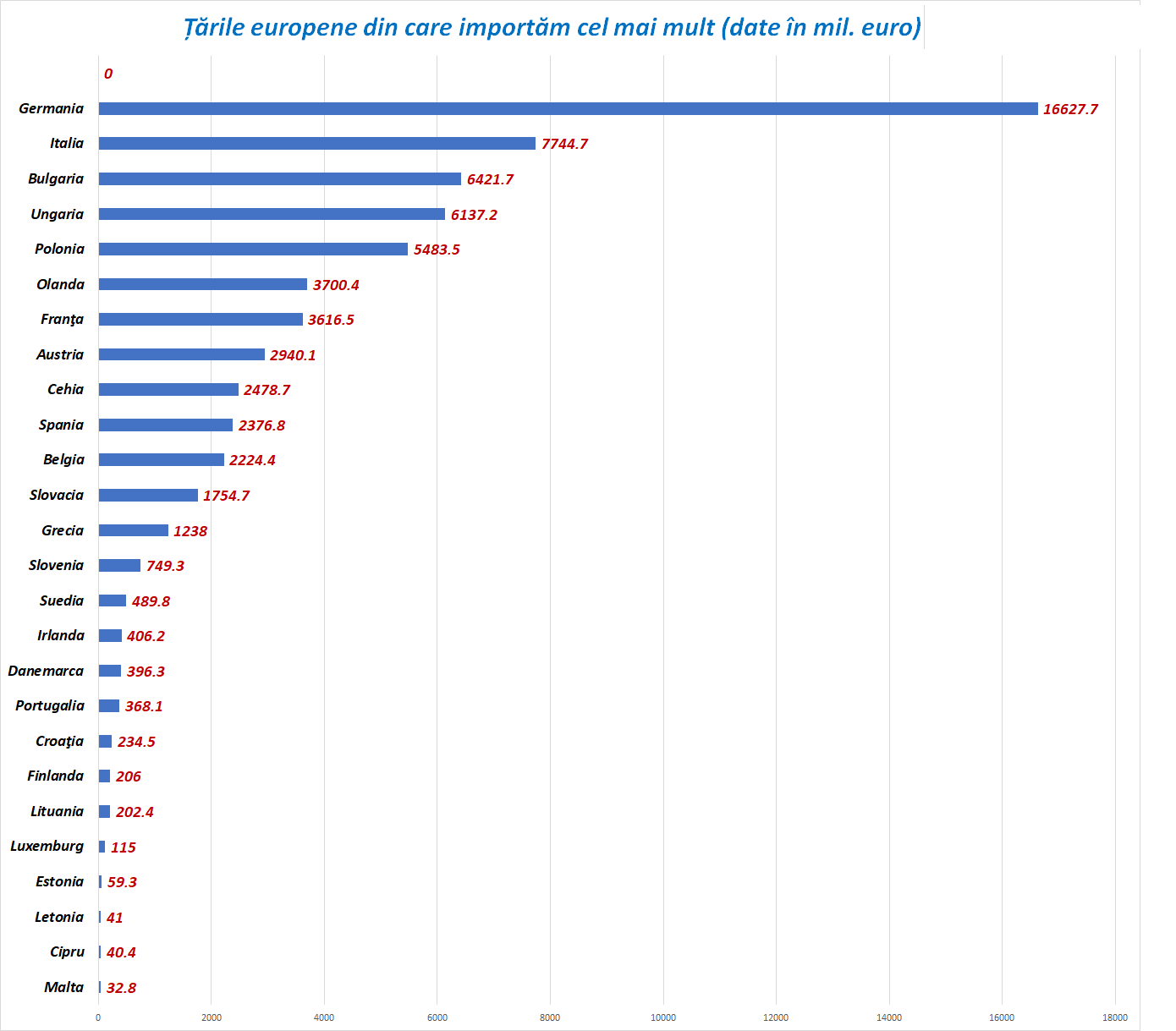
Almost every time you shop in the supermarket and buy basic products – meat, milk, eggs, you unknowingly create difficulties for Mugur Isărescu in the fight against inflation. Because we import a good portion of these products, and with them we import inflation from that country.
Germany: milk inflation-25%. Butter – 48%
We import the largest amount from Germany (according to the INS Foreign Trade Yearbook), from where we mainly import milk and dairy products; eggs; honey; edible products of animal origin, not specified elsewhere (more than 200 million euros), edible meat and organs (180 million euros), edible fruits (110 million euros), preparations based on cereals, flour; confectionery (103 million euros) and cocoa and cocoa products (101 million euros).
In milk, inflation in Germany amounted to almost 25% in 2021 (according to Destatis.de – the German statistical office). There, the price of eggs increased by more than 25%. Butter with a content of more than 48%
Italy: we are massively importing fuel and oils
From Italy, we transport fuel and petroleum products (almost 150 million euros), flour and meal (70 million euros), milk and coffee (over 50 million euros). The price increase for products imported from Italy averaged 14% (except for fuel), reports istat.it.

From Bulgaria, we transport fuel (3.3 billion euros), grain (177 million euros) and beverages (a little more than 60 million euros). right Bulgarian statistics Beverages rose by 3.9%, and the Food and Non-Alcoholic Beverages category rose by approximately 17% in November 2022.
From Hungary, after mass fuel imports (almost a billion euros), they are in second place Food industry residues and waste; animal feed (€172 million, see below). This is followed by the import of meat and edible organs (almost 160 million euros), alcoholic and non-alcoholic beverages; vinegar (130 million euros) and import of milk and dairy products; eggs; honey (111 million euros).
Inflation in the “food” category in November 2022 amounted to almost 44%, according to Data from Hungarian statistics
Category Residues and food industry waste; Animal feed includes:
Flour, powder and agglomerates in the form of granules from molluscs or other aquatic invertebrates, unfit for human consumption; greaves
Chaff, shavings and other residues from grinding, pressing, sifting of grain or leguminous crops
Waste from the production of starch and similar waste, sugar beet pulp, waste from the processing of sugar cane and other waste from the production of sugar, waste from the production of beer or distillation
Cake and other waste obtained as a result of the extraction of soybean oil, peanut oil, fats and wine yeast; raw tartar, plant materials used in animal feed.
We bring milk, eggs, honey, meat from Poland
The next country from which we massively import is Poland (5.5 billion euros). From there we supply ourselves with fuel and mineral oils (170 million euros), milk and dairy products; eggs; honey; (126 million euros), Preparations based on cereals, flour; confectionery (105 million euros), meat and edible organs (94 million euros) and various foodstuffs (73 million euros).
In Poland in November 2021, milk inflation was about 22%. Eggs rose in price by 16.3%, flour products by 34%, meat by 28% (beef) and 34% (chicken). Polish statistics.
Holland gives us meat, fruits and vegetables
The Netherlands continues to be the leader of the countries from which we import the most (3.7 billion euros)
right Dutch statistics, In December last year, the price of meat rose by 13%, butter – by 32%, eggs – by 33%. From the Netherlands we import: live plants and floriculture products (118 million euros), meat and edible organs (99 million euros), edible fruits (80 million euros), vegetables, plants, roots and tubers, food products (73 million euros )
See here what, how much and from where we import (I chose several European countries)
Used sources:
Statistical yearbook of the INS, the national statistical services (institutes) of the states included in the article
Source: Hot News
Ashley Bailey is a talented author and journalist known for her writing on trending topics. Currently working at 247 news reel, she brings readers fresh perspectives on current issues. With her well-researched and thought-provoking articles, she captures the zeitgeist and stays ahead of the latest trends. Ashley’s writing is a must-read for anyone interested in staying up-to-date with the latest developments.